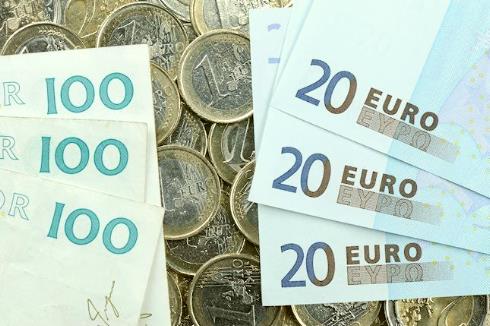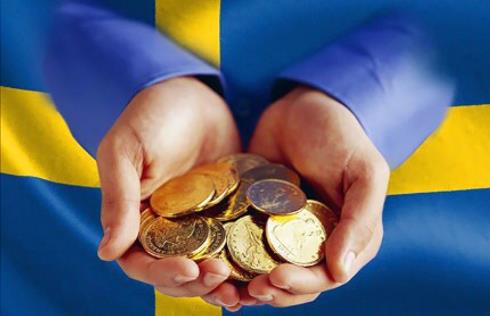The Swedish Case: How Does Sweden Successfully Keep Interest Rates Below Zero?
The Northern states in Europe have been throughout the history, peculiar states. With impressively strong economies, low inflation rates and an outstandingly low unemployment rates, these cases make us wonder where do we mistake economy and society-wise.
Sweden is one of those European countries with the highest living standard across the world. But what is truly impressive about Sweden is the fact that for years, it has successfully maintained sub-zero interest rates.
Interest rates-wise, historically, it has been thought that zero is the absolute minimal level. Sweden, however, as one of the leading economic forces in Europe and not only, has mingled with the idea that it can go lower. As so, it pushed Central Banks' interest rates to below zero values. This has completely changed the Government's perspective on how they could approach financial and economic crisis in the future. Economically, this measure turned the whole financial world upside-down. But with no negative effects until now, as we will notice in the following paragraphs.
A Change of Perspective
Traditionally, the general opinion on how could central bank policy-makers sustain their economies and maintain those afloat is that they should lower interest rates nearby zero. This makes the rates practiced on savings accounts follow the descending trend. It would also motivate people to save less money, as the interest rates won't be tempting; people would also start spending more. As a result, the economy will be sustained. But this is only a theory, at least in Sweden's case. Sweden's Riksbank took this idea a step further and cuts interest rates below zero.
Normally, the theory claims that there exists an "zero lower bound". If banks cut rates too low, there are some negative effects expected. If you cut rates too low, people will have negative returns on their savings accounts. As a result, people will start emptying their savings accounts and start keeping their money "safe", "under the mattress". And the domino effect will continue with a slower economy.
What has happened in Sweden for years shouldn't be possible. However, it still is. The economy is functioning great, people still open consumer loans and save money.
But the Riksbank recently announced that keeping the repo rate too low will not be possible for too long, as it will negatively impact the economy.
A Peculiar Case
Yes, in the future, the Riksbank might raise the repo rate. But for years, Sweden properly functioned as an economy with the sub-zero rate. The big question is "How?". While the rates practiced on bank deposits have followed the descending trend, people still kept their money in banks, rather than stuffing it in their "savings socks", or even spent it. The answer lays in Sweden's economic and social characteristics. The country was the perfect candidate to start such economic experiments.
The country was one of the European states with one of the highest savings rates in the world. And apparently, there is space for further growth. Unemployment is almost as low as it was in the pre-economic crisis era. Deflation and inflation are far from being known experiences to the Swedish, as the Riksbank successfully keeps the country's inflation rates conveniently below target (currently positioned at -0.2pc).
Sweden's flexible economic policies made it possible for the central bank to battle deflation, lower import prices and made the Swedish Krona stronger than Euro. In this context, Riksbank claimed several years ago that the rates shall be lowered furthermore if the positive living standard is maintained.
Sweden's bold movement has been followed in the past by Denmark and the eurozone, and the move gained the attention of the US Government back in 2015, just before an interest rate rise was about to be adopted.
The End of an Era?
But can a policy like this be maintained for unlimited periods? This is uncharted territory for most economists. Sweden's economic fate was still unknown for a long interval. In 2015, economists thought that even if the negative effects of this measure weren't known yet, they existed. Many Swedish citizens still prefer using cash. Pension funds were expected to be the first to go out of banks.
While the Swedish economy is still strong, the future is unclear. External pressure regarding inflation rates in Sweden is expected to become more accentuated in the future. And although the economic development of the state is a positive one, Riksbank representatives ask the population to remember that the low inflation rate is currently controlled largely due to the increasing energy prices. The inflation rates are stable, however. They are expected to be maintained below target even if the energy prices won't experience similar growth.
The Riksbank also announced that in the near future, the interest rate will be raised. There is no reason to maintain a negative interest rate if the country's economy isn't threatened by an economic crisis, according to economists. But as of September 2018, the repo rate remained unchanged, at the historic level of -0.5.
Conclusion
States all over the world witnessed a case which shouldn't be possible, in reality. Negative interest rates should motivate citizens to give up their savings accounts and keep their money in-house. In Sweden, this didn't happen. Traditionally, negative interest rates shouldn't be possible, but this country, in all its particularities, proved economists and strong financial voices all over the world, that this isn't the case. Although the change is about to happen, we still have to wait to witness it. However, economies all over the world have seen in the past few years that a flexible approach to the economy and financial policies can be a real saver in times of uncertainty and financial struggle. Once again, Sweden reaffirmed its position as one of the leading European economic forces.



